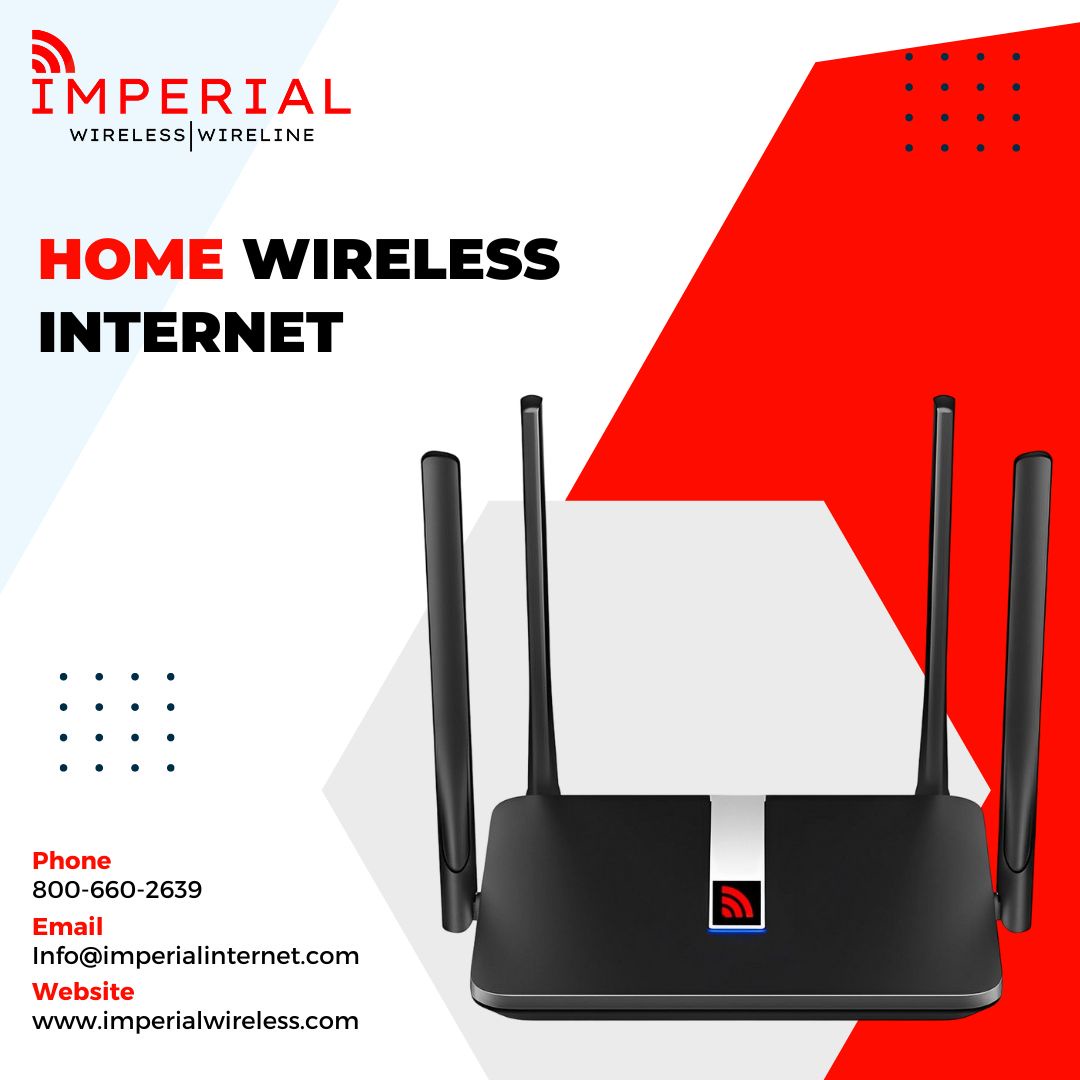Introduction to 5G Home Internet
The following 5G mobile internet technology can change how we access the internet at home entirely. 5G home internet promises to deliver a new level of connectedness and speed that we've never experienced before, with download speeds up to 100 times faster than 4G. This implies that there will be significantly less buffering and lag when downloading large files, streaming high-definition videos, and playing online games. Additionally, 5G's reduced latency enables almost immediate communication between devices, improving the user experience for interactive apps like virtual reality. This article by Imperial Wireless will examine the 5G home internet, including its highlights, limitations, and potential future applications.
Working on Home Wireless Internet
Internet access for homes using 5G technology is called 5G home internet. The fifth generation, or 5G, of mobile telecommunications technology, offers enhanced connectivity, quicker speeds, and reduced latency compared to earlier generations of mobile networks like 4G. A 5G router often provides 5G home internet, which functions similarly to standard internet service. It uses a 5G mobile network to deliver internet over WiFi to your home devices. 5G home internet is often "plug and play," meaning that all you have to do to get started is plug the modem into a power outlet.
Highlights of 5G Home Internet
One of its main benefits is the potential for 5G home wireless internet to support more devices simultaneously. When several devices were connected to the same network using 4G, we frequently experienced buffering and slowdowns. The key to a connected home is the ability to stream, work, and play simultaneously on numerous devices without experiencing any lag, thanks to 5G's increased device capacity. Your typical electronics, including smart TVs, PCs, mobile phones, and smart home appliances like Google Home, will operate efficiently.
Low latency, or the time it takes for data to move from your device to the internet and back, is another significant benefit of 5G home internet. The latency of 5G is predicted to decrease with further upgrades and is currently less than a quarter of that of 4G. You won't notice any lag, whether using virtual reality applications, streaming videos, or playing online games, thanks to 5G's significantly reduced latency.
Connecting to gadgets over a considerably more comprehensive range is another benefit of 5G home internet. This implies you can access your 5G home internet from your driveway, garage, or automobile. People who reside in remote areas or locations with sporadic internet connectivity should pay particular attention to this.
Despite being in its early stages, 5G home internet is already beginning to roll out in select locations. Additionally, it will become more widely accessible as 5G networks are deployed on a larger scale. It's important to note that 5G home wireless internet will also require new hardware, including a 5G router and 5G-capable gadgets, which could incur additional expenses.
Limitations of 5G Internet
Although 5G home internet has a lot of potential advantages, there are some drawbacks to take into account as well:
Limited coverage: Because 5G networks are still being deployed, their range could be better, especially in rural areas. This implies that, at least initially, not everyone will have access to 5G home wireless internet.
Cost: 5G home internet services might be more expensive than conventional connections. Additionally, routers and other 5G-capable hardware can be costly.
Interference: Since 5G networks use higher frequencies than older generations, there may be more interference with Bluetooth, WiFi, and other wireless technologies.
Dependence on the service provider: 5G home internet users won't have access to the internet if the service provider experiences a network outage or needs to perform maintenance.
Security risks: 5G home internet systems could be subject to hacking and other online dangers like any other internet-connected equipment.
Future Prospects
Over the coming decades, 5G will provide individuals and society with several noticeable prospects. These are just a few ways it might alter humanity:
- Greater access: 5G technology is anticipated to offer quicker and more dependable internet access, enabling more devices to connect to the internet and new technologies and applications with lower latency (less than 10 ms).
- Better Communication: 5G is anticipated to make it possible for both human and machine communication to be faster and more effective. Better collaboration and coordination between individuals and within organizations may result from this.
- Enhanced Experiences: 5G is anticipated to provide brand-new, improved experiences in niches like gaming, video streaming, and augmented and virtual reality.
- Greater Productivity: 5G is anticipated to open up new avenues for business and work, including automation and remote collaboration, which might boost output and efficiency.
Conclusion
In summary, 5G home internet is the connectivity of the future, bringing us faster speeds, more reliable connections, and the capacity to connect more devices simultaneously. A digital divide between urban and rural areas will also be reduced as a result. Exciting new possibilities for internet usage in our homes and elsewhere will arise when 5G home internet becomes more generally accessible. Check out Imperial Wireless' 5G home internet data plans for seamless connectivity.


No comments yet